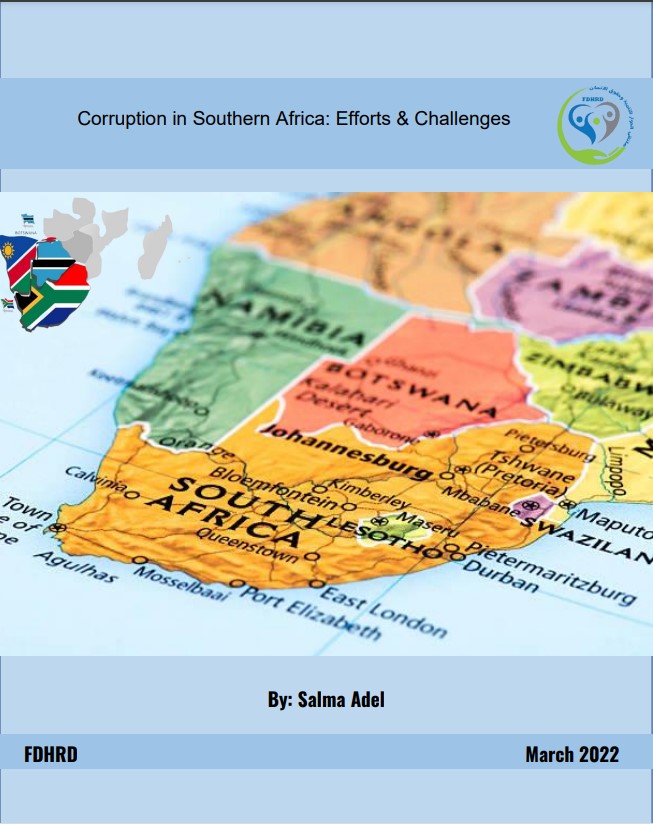Press Release
……………………………………………………
Today, Monday, March 20, 2022, the Transparency and Integrity Program of the Forum for Development and Human Rights Dialogue issued a report entitled: (Corruption in Southern Africa: Efforts and Challenges). Given the suffering of the African continent from the consequences of corrupt practices, an estimated $88.6 billion leaves the continent each year from illegal capital flight abroad. This is a significant drain on Africa’s capital and revenue, increasing the annual financing gap that the continent suffers from, and undermining its ability to achieve the SDGs.
The report discussed corruption in the Southern African countries: Botswana, Namibia, and South Africa, while providing general statistics to depict corruption rates in each country. It also examined the forms of corruption prevailing there, and highlighted the efforts and challenges facing each of them in their fight against corruption, presenting different corruption cases in each country.
First: Botswana
Although Botswana suffers from nepotism and patronage, it is considered the least corrupt country in southern Africa. It is making a lot of efforts to reduce corruption by ratifying international and regional agreements, and issuing many legislations. However, its Directorate of Corruption and Economic Crime suffers from a lack of independence and does not have the authority to prosecute corruption cases, which delays the conduct of trials. Impunity and lack of accountability are also rampant in Botswana.
Second: Namibia
It is a state party to the United Nations Convention against Corruption, as well as to the African Union Convention on Preventing and Combating Corruption. Namibia has established the Anti-Corruption Commission. It also has an ombudsman office. However, it suffers from corrupt practices in public procurement, state bureaucracy, and customs. Moreover, extractive industries in Namibia are considered a great opportunity for illicit enrichment.
Third: South Africa
Several types of corruption are rampant in it, including: petty corruption, and state capture. There have been positive steps to expose and address high-level corruption, such as the Comission of Inquiry into State Capture, and the 2020 Anti-Corruption Crackdown. Despite the government’s continuous efforts to eliminate corruption, weak law enforcement and prosecutors have been hollowed out during the years of state capture, during Jacob Zuma’s presidency.
The report concluded by emphasizing that the three countries in the Southern African region are among the least corrupt in Africa, however, over the past few years the rate of corruption is increasing. This does not mean that their anti-corruption efforts have waned, however, they have faced various challenges, with COVID-19 being the most visible and recent one








